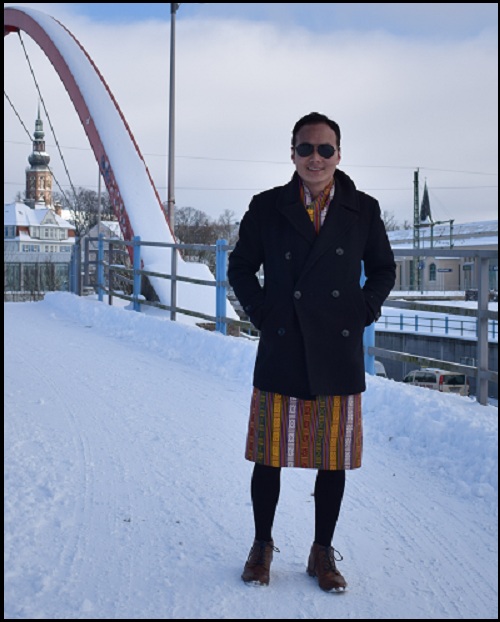This is just a copy paste of what is being reflected on the International go Greifswald web, part contributed by myself. Just in case they update the web with those of new scholars;
Studies in home country
Forestry (B.Sc.), College of Forestry, Birsa Agricultural university, India (2012)
Activity in Greifswald
Master of Science Landscape Ecology and Nature Conservation (LENC)
Period
August 2016 - September 2018
Why did I come to Germany?
"I wanted to enhance my professional knowledge in conservation, and that I aspired to achieve from a new environment. University of Greifswald bestowed me with the privilege and the new journey began. The wonderful experiences followed later.
After graduating with a B.Sc. Forestry degree from India, I was working as a conservationist at a national park in my country, Bhutan. As conservationists, we confront many challenges in safeguarding the pristine natural forests and protecting the wildlife in it. We have communities within the national parks and enabling a harmonious coexistence between people and nature is very important for us. Wildlife too need a freedom of movement and protected areas alone don’t serve the purpose. I felt that a landscape approach to conservation is the most viable solution to this. I felt an urgency to enhance my professional knowledge and I wanted to achieve it from a new environment. My quest for the ideal combo then began.
While there are many exciting courses and places worldwide, yet finance was a major constraint. For an aspirant from a developing country, it’s hard to manage even the daily subsistence in a developed country, let alone the huge course fees. But there are countries like Germany where no substantial fee are collected for pursuing university degrees if you are enthusiastic and competent. Moreover, there is DAAD, the largest German support organisation in the field of international academic co-operation. DAAD supports scholars from many developing nations to pursue higher education in Germany and I saw the hope to study in Germany.
More than glad, I found that Landscape Ecology & Nature Conservation (LENC) at the University of Greifswald have support from DAAD and lucky enough, I was among the few who got selected to pursue the course of my aspiration in a new place in 2016. I marked the first footprint of Bhutan in Greifswald. That was the journey and experiences followed later."
What I liked the most in Greifswald
I come from the countryside in Bhutan so I expected Greifswald would be a metro city, but reaching here, I found it small and beautiful. The ambience in Greifswald is very similar to where I come from so I got acclimatized to the place very easily. Without much hustles and bustles, and with serene environment, it’s a perfect place to live specially for studying the course like Landscape Ecology. The city is cycle friendly and cycle almost every day, and that’s the best thing we can do in Greifswald, because it is ecological friendly and good for our health.
What was difficult for me
Language was a barrier for me. When I came to Germany, I was well aware that English is not the spoken language here so I was determined to learn German and exhibit it with pride. However, German language was too tough for me to learn because I was more focussed on the subjects of my study. I couldn’t learn German as aspired so in some situations, I really feel awkward not knowing how to get my things done. It is specially challenging when I have to visit the clinic or a doctor and when the doctor don’t speak English. But, I have German friends and they are so helpful, so I don’t have to worry much.
What I learned
Being in a new environment with multicultural interactions, I am enriched with memoirs of intercultural coexistence, which was further enhanced by programmes organized in the university such as intercultural exchanges, international day, Greifswald summer school etc. Besides the academic knowledge, one thing which we can learn in Greifswald is the coexistence of diverse cultures. I am glad to have friends from all major continents of the world. All I can take along is the good memories.









